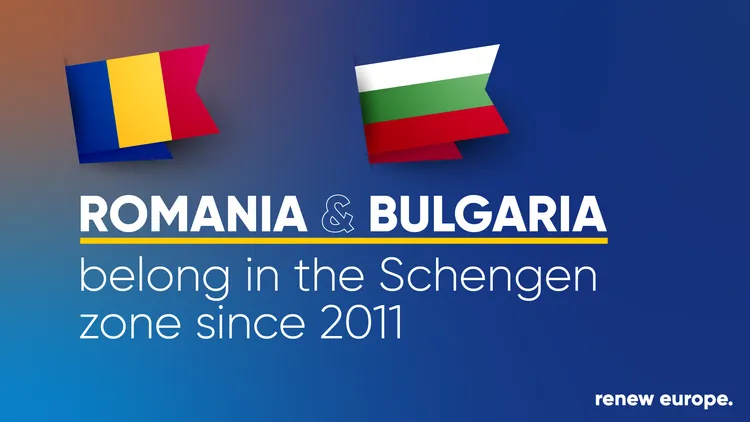Discussions regarding the full entry of Bulgaria and Romania into the Schengen area continue without a clear timetable. Following a meeting between Austrian Federal Chancellor Karl Nehammer and Romanian President Klaus Iohannis in Bucharest on Thursday, the Austrian media reported on the ongoing deliberations.
Austria, a key player in the Schengen discussions, emphasized the need to assess the situation comprehensively before finalizing any entry plans. Chancellor Nehammer highlighted the importance of implementing additional measures to ensure the effectiveness of external border protection. He noted that Romania has received significantly fewer asylum applications compared to Austria, indicating a disproportionate burden on landlocked countries like Austria.
“We still bear the greater burden as a landlocked country. We need to think about how to effectively fight illegal migration routes, i.e., traffic channels. The further roadmap will be based on this,” Chancellor Nehammer explained.
Yesterday, at the EPP congress in Bucharest, Deputy Prime Minister and Minister of Foreign Affairs of Bulgaria, Mariya Gabriel, stressed the urgency of Bulgaria and Romania joining the Schengen area, particularly by land, to enhance migration management capabilities. Gabriel highlighted Bulgaria’s role in safeguarding the EU’s external borders and outlined key priorities, including security in the Black Sea, border reinforcement, support for Ukraine, and energy security.
In addition, at the congress in Bucharest, GERB leader Boyko Borissov made a passionate plea for Austria to reconsider its decision blocking Bulgaria and Romania’s Schengen accession via land borders. Borissov highlighted the issue’s proximity to the conference venue, emphasizing the logistical challenges at Danube Bridge 2. He assured Austria of Bulgaria’s reliable border security measures and advocated for resolving domestic political issues without impacting neighboring countries.
Manfred Weber, EPP chairman, also stressed the urgency of Bulgaria and Romania’s Schengen accession, urging Austrian parties to support the move. Weber emphasized the need to garner support from all Austrian parties for the inclusion of Bulgaria and Romania into the Schengen Area, highlighting their importance. Nicolae Ciuca, chairman of the Romanian National Liberal Party, echoed Weber’s sentiments, expressing hope for full Schengen accession at the congress and emphasizing the significance of Romania’s inclusion in the land border aspect.
During her visit to Bucharest for the European People’s Party (EPP) congress, European Parliament President Roberta Metsola reaffirmed her commitment to Romania’s accession to the Schengen area. Metsola emphasized that Romania’s integration into the border-free zone is crucial, stating that the Schengen area cannot be considered complete without Romania’s inclusion. Speaking at the National Opera House in Bucharest, Metsola expressed her unwavering support for Romania’s efforts since joining the EU in 2007 and pledged to actively engage with authorities to facilitate the accession process. She acknowledged Romania’s longstanding aspiration to join the Schengen Area and underscored her dedication to advocating for its inclusion.
Curiously, Romanian Prime Minister Marcel Ciolacu has announced firm plans for Romania to join the Schengen area via its land borders by the end of this year. This comes as Austrian Interior Minister Gerhard Karner refrained from providing a specific timeframe for overcoming the veto on Romania and Bulgaria’s entry into Schengen through land routes. Romania and Bulgaria will initially enter Schengen through air and sea routes this month. Read more about air and sea Schengen here.

